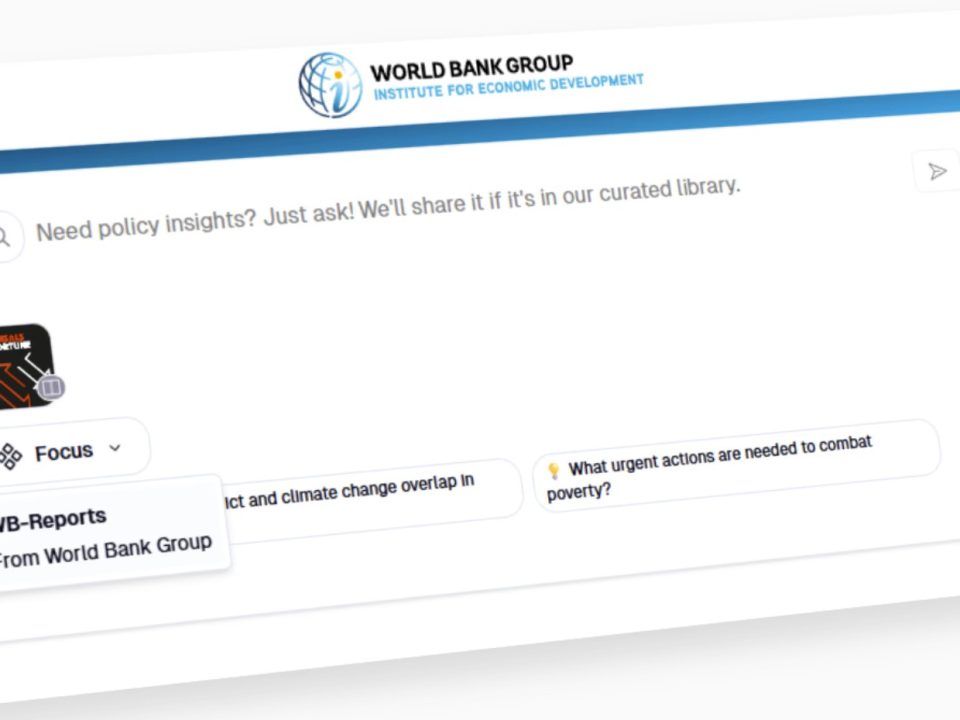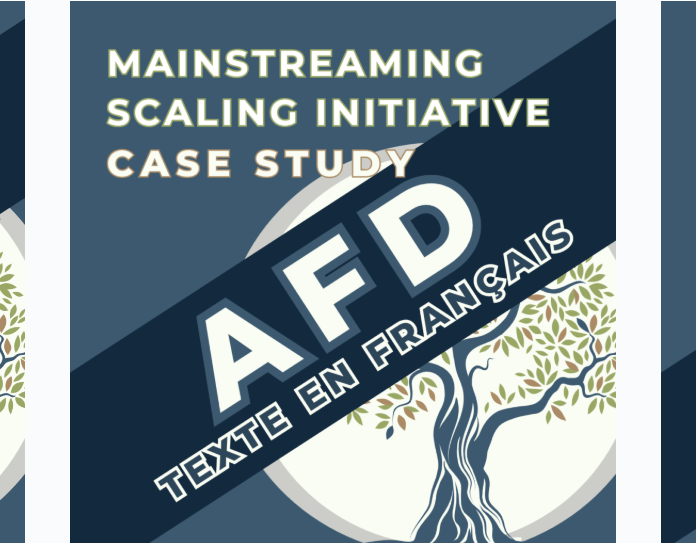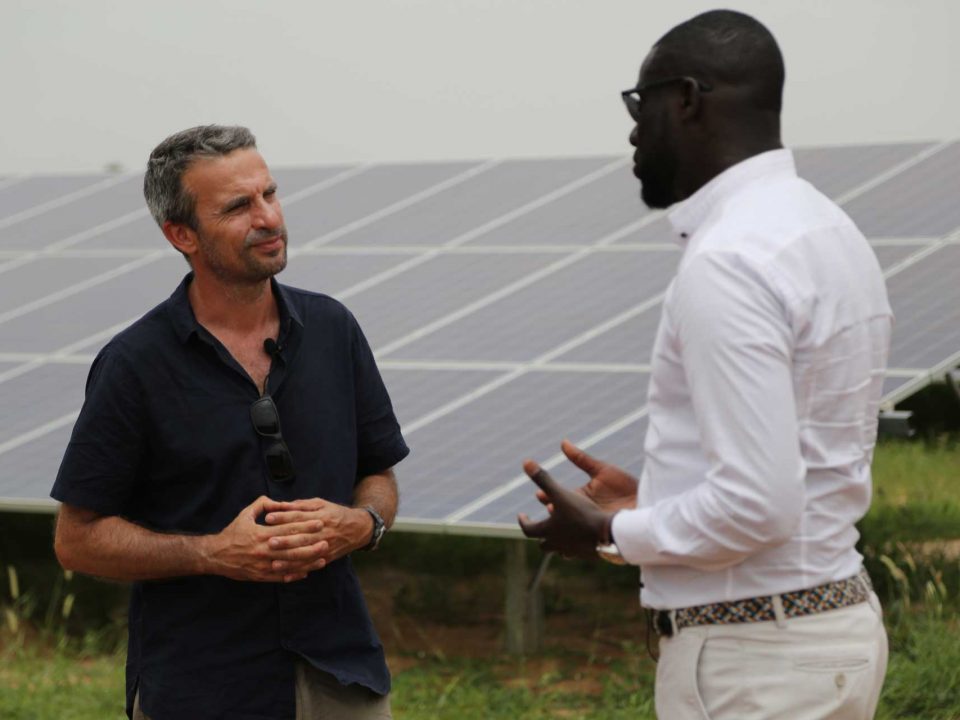
Le Passage à l’Échelle « PAE » : une démarche innovante pour financer le développement
5 octobre 2024
L’IA générative va-t-elle compliquer encore davantage l’accès à des emplois de qualité ?
17 novembre 2024On the fringes of the 18th summit of the Francophonie held in Villers Cotterêts, France, a number of events were held with development players. These players include donors, governments, businesses, foundations and, of course, diplomats. Alongside the summit, the first FrancoTech event was held on 3 and 4 October at Station F, with the aim of bringing together French-speaking tech players on an annual basis.
Numerous round tables, keynotes and informal meetings focused on finding new ways of optimising and accelerating development financing mechanisms. How can we act in a more agile way so as not to repeat what has already been done, so as to optimise impact and act more quickly and more closely to vital economic and social needs in developing countries? Scaling up is often mentioned, but what is its potential?
Scaling up, or PAE, is an approach that consists of scaling up in order to bring together financial backers and local operators in order to replicate and amplify the impact of projects that have already been carried out.
But how can this approach be scaled up so that operators can make it their own? How can we align ourselves with common indicators, the MDGs, local contexts and the priorities of states in the short and medium term?
Scaling up development aid funding in Africa is a crucial approach for transforming local or small-scale pilot projects into regional or national initiatives, in order to reach a larger number of beneficiaries. This approach not only increases the impact of successful programmes, but also optimises resources and ensures the sustainability of projects in the varied and sometimes complex contexts of the African continent.
The benefits of scaling up development aid in Africa
Responding to massive needs
Sub-Saharan Africa faces considerable socio-economic challenges in the areas of health, education, agriculture and infrastructure. Scaling up enables a more structured response to these challenges by spreading proven solutions to larger populations.
Scaling up projects already underway in Africa would accelerate economic development for a number of practical reasons:
Multiplier effects: Successful small-scale initiatives, such as energy or financial access programmes, when scaled up, reach a larger number of beneficiaries, generating faster economic benefits through employment, financial inclusion and increased incomes.
Cost reduction: Scaling up projects enables economies of scale, reducing the unit costs of interventions (e.g. health or education infrastructure). This frees up resources for other investments.
Rapid dissemination of innovations: By building on technologies and practices that have already been tested, governments and investors can replicate appropriate solutions, such as irrigation systems or mobile services, and thus accelerate the transformation of key sectors (agriculture, energy, finance).
Mobilising large-scale resources
Scaling up often requires the mobilisation of greater financial, human and material resources. In Africa, this approach can attract additional international funding. For example, large-scale initiatives, such as the national universal health insurance programme in Ghana, have benefited from more substantial funding because of their potential to reach millions of people and transform the health sector.
One example is the Finance in Common approach, which is the global network of all public development banks (PDBs), which aims to align financial flows with the 2030 Agenda and the Paris Agreement on climate change.
Inclusion and reducing inequalities
Scaling up enables greater inclusion of marginalised or rural populations who are often left out of small-scale projects. For example, microfinance programmes for women in West Africa (such as those in Senegal and Mali) have proved their local effectiveness. Their expansion could include millions of women in rural areas, offering economic opportunities to vulnerable populations.
How to boost the spread of initiatives in Africa :
1 – Regional approaches and inter-country partnerships
Africa is a diverse continent, with distinct socio-economic and cultural realities from one region to another. Regional approaches that take account of local specificities while creating synergies between countries are essential if spin-offs are to be amplified. For example, in the Sahel region, projects focusing on resilience in the face of climate change (such as the Great Green Wall Programme in Senegal, Mali and Niger) have been shared between several countries. This regional cooperation means that innovations such as drought-resistant farming practices can be disseminated more quickly.
2 – Flexible standardisation
To ensure that innovations can spread, it is important to develop standardised models that can be adapted locally. For example, rural electrification projects using solar mini-grids, such as those implemented in Kenya, can be standardised and adapted for other countries such as Uganda or Tanzania, while taking into account the electrical infrastructure and regulatory frameworks specific to each country.
3 – Developing local capacity
Spin-off also depends on the capacity of local communities and governments to take charge and manage projects. Building the capacity of local players is essential to ensure sustainability and long-term management. Targeted training courses, such as those organised in Rwanda to train farmers in low-cost irrigation techniques, can be replicated in other African countries. What’s more, institutionalising these skills in local structures, such as agricultural cooperatives or local NGOs, makes it easier for them to spread.
4 – Digital technologies
Digital technologies play a key role in extending development projects in Africa. E-learning platforms, mobile-based monitoring systems and digital applications allow the reach of programmes to be rapidly extended. For example, in East Africa, the Bridge International Academies digital education programme uses tablets to deliver lessons and collect data on pupils’ academic performance. This enables centralised management, and lessons learned can be quickly shared and adjusted in other schools. The 42 schools, which offer free face-to-face training on physical campuses in codes accessible to the uninitiated, are now established in 31 countries with 54 operational campuses!
5 – Innovative financing
To facilitate the transition to scale, it is necessary to mobilise innovative financing, such as blended finance (combining public and private funds) or social impact bonds. In South Africa, for example, public-private partnerships have made it possible to finance drinking water projects on a large scale. Similarly, social investment funds for women’s entrepreneurship or renewable energy in sub-Saharan Africa attract external funding by linking results to measurable objectives African Development Bank, World Bank, Gates Foundation, etc.
Efficient impact monitoring in Africa
Impact monitoring is essential to ensure that scaling up is done efficiently, without losing quality or relevance. This monitoring enables the adaptation to the local economic and social context to be analysed. Analyses enable data to be collected and superimposed on similar projects to identify benefits and drawbacks. Finally, impact monitoring is used to assess the sustainability of the project in economic contexts that are subject to the vagaries of geopolitical, environmental and social events.
1 – Establishing appropriate indicators
From the outset, it is important to define clear performance indicators that are adapted to the local context in order to measure the impact of the project. These indicators must be aligned with the Sustainable Development Goals (SDGs) and be monitored on an ongoing basis. For example, as part of an access to education programme in Ethiopia, indicators such as school enrolment rates, drop-out rates and exam results can be used to measure the effectiveness of the project and serve as a model for other countries.
2 – Use of real-time data collection tools
In Africa, digital tools such as mobile data management systems can be deployed to collect real-time information on beneficiaries and outcomes. For example, in Kenya, community health workers use smartphones to track vaccinations and antenatal care, enabling fast and reliable data collection. This data can be centralised and analysed to adapt interventions in real time. The potential for replication of these systems in other regions is immense.
3 – Participatory and inclusive evaluation
Involving local communities in the evaluation process ensures valuable feedback. For example, in Ghana, water management programmes directly involve end-users in monitoring water quality and infrastructure management. This participatory data makes it possible to monitor the real impact on the living conditions of beneficiaries and to make adjustments quickly if necessary.
4 – Partnerships with academic and research institutions
Working with African universities or local research institutes to evaluate large-scale projects ensures that evaluation methodologies are rigorous. In South Africa, for example, researchers are working with international organisations to assess the impact of economic growth programmes, and hence poverty reduction, over the long term. These partnerships also help to strengthen local capacity to carry out rigorous evaluations.
5 – Transparent impact reports
Regular publication of transparent impact reports is essential to ensure accountability to donors and beneficiaries. It also enables lessons learned to be shared with other countries or regions that may wish to replicate the initiatives.
In conclusion
Scaling up development projects in Africa is a strategic approach to maximising the impact of initiatives that work. By scaling up through regional partnerships, flexible standardisation of projects, local capacity building, and the use of digital technologies, Africa can not only respond to massive development challenges, but also create sustainable and inclusive solutions.
Monitoring impact through modern technological tools, participatory approaches and appropriate indicators ensures that these projects deliver concrete results, improving the lives of millions of people across the continent.
Scaling up as a strategic axis for development?
The Fourth International Conference on Financing for Development (FfD4) will be held in Seville (Spain) from 30 June to 3 July 2025. It follows on from previous conferences (Monterrey in 2002, Doha in 2008, Addis Ababa in 2015), which aimed to align international financing with global socio-economic and environmental priorities. In particular, these conferences provide an opportunity to reach an international consensus on standards that can guide the actions of governments, international organisations, businesses, civil society and philanthropy. Source IDDRI
Lastly, the Scaling Community of Practice brings together those involved in scaling up and produces some excellent publications on the subject, such as Mainstreaming Scaling: A Case study of GFF.




